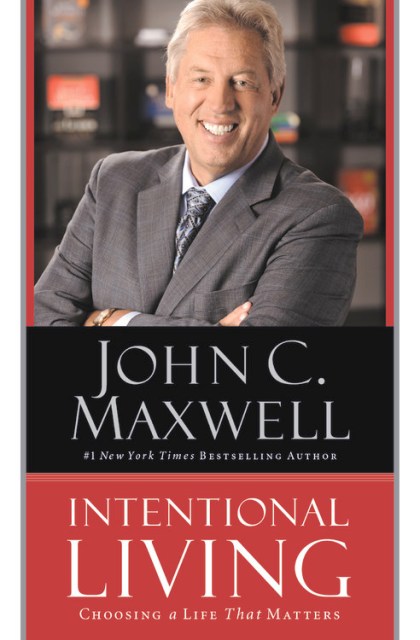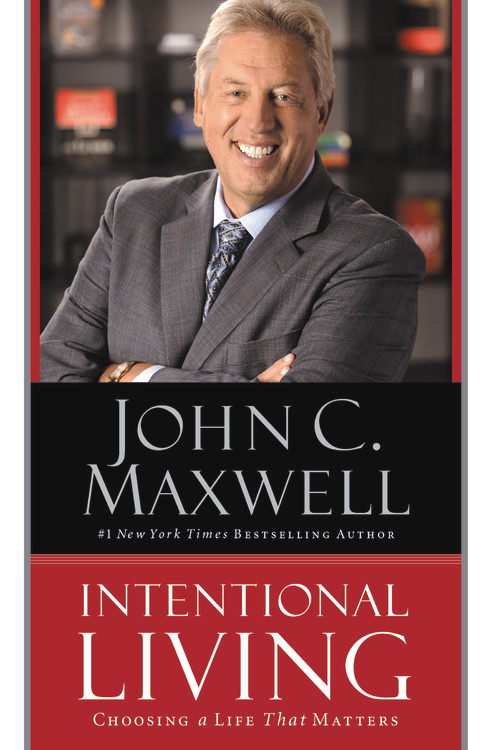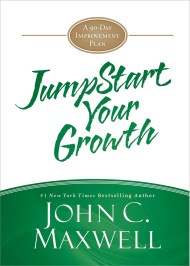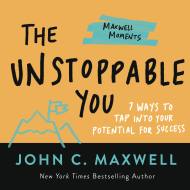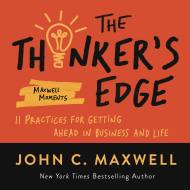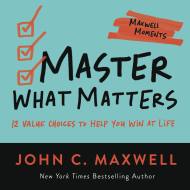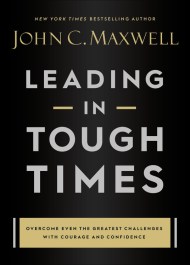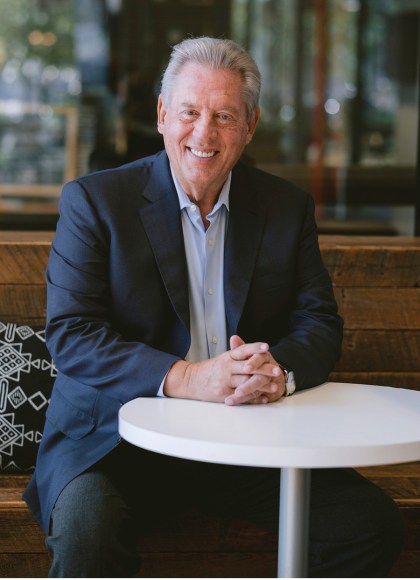By clicking “Accept,” you agree to the use of cookies and similar technologies on your device as set forth in our Cookie Policy and our Privacy Policy. Please note that certain cookies are essential for this website to function properly and do not require user consent to be deployed.
Intentional Living
Choosing a Life That Matters
Contributors
Formats and Prices
- On Sale
- Sep 12, 2017
- Page Count
- 288 pages
- Publisher
- Center Street
- ISBN-13
- 9781455548149
Price
$19.99Price
$25.99 CADFormat
This item is a preorder. Your payment method will be charged immediately, and the product is expected to ship on or around September 12, 2017. This date is subject to change due to shipping delays beyond our control.
Buy from Other Retailers:
We all have a longing to be significant. We want to make a contribution, to be a part of something noble and purposeful. But many people wrongly believe significance is unattainable. They worry that it’s too big for them to achieve. That they have to have an amazing idea, be a certain age, have a lot of money, or be powerful or famous to make a real difference.
The good news is that none of those things is necessary for you to achieve significance and create a lasting legacy. The only thing you need to achieve significance is to be intentional. And to do that, all you need to do is start. You can’t make an impact sitting still and doing nothing. Every major accomplishment that’s ever been achieved started with a first step. Sometimes it’s hard; other times it’s easy, but no matter what, you have to do it if you want to get anywhere in life.
In Intentional Living, John Maxwell will help you take that first step, and the ones that follow, on your personal path through a life that matters.
-
"Drive. Focus. Commitment. I ask this from all of my players because they are essential qualities for success on the court. In INTENTIONAL LIVING, John Maxwell shares how the same qualities are necessary for life. John's ability to share from his own experience inspires the reader to believe they can have a life that matters if they want-and gives the reader tools to make that dream a reality."John Calipari, National championship head coach and 2015 Naismith Memorial Basketball Hall of Fame inductee
-
"INTENTIONAL LIVING is an absolute must-read no matter what occupation you are in."Louisville Business First
-
"Thought-provoking and encouraging...with hundreds of questions designed to help readers in their quest for personal and professional growth. Clear and inspiring, this is a great approach to leadership."Publishers Weekly on Good Leaders Ask Great Questions
-
"An intriguing look at leadership with practical advice makes this book beneficial to. . .anyone who wants to develop and improve their skills."Library Journal on Good Leaders Ask Great Questions
-
"The first time I met John Maxwell, I could tell that he and I shared the same values. He cares about people and he wants to help them. One of the best ways to do that is to teach people how to overcome failure and adversity. That ability turned my life around. If you read Sometimes You Win--Sometimes You Learn, you will learn that valuable skill. I highly recommend this book."Ben Carson, M.D., pediatric neurosurgeon and NYT bestselling author of America the Beautiful and Gifted Hands, on Sometimes You Win--Sometimes You Learn
-
"Millions of individuals--myself included--have been inspired by the words and works of John Maxwell. Now, in The 15 Invaluable Laws of Growth, John again shares his remarkable insights and wisdom into how each of us can reach our full potential and make a positive difference in the lives of others."Elizabeth Dole, former U.S. Cabinet Secretary, Senator and President of the American Red Cross, on The 15 Invaluable Laws of Growth
-
"As a coach and leader, I am always looking for ways to teach my players how to grow. Thanks to my good friend John Maxwell, you hold in your hands the instruction manual for taking next steps of growth. Embracing these laws will cause you to grow individually and in your contribution to those around you. This book is a must-read for anyone responsible for helping others to grow."John Calipari, Head Basketball Coach at the University of Kentucky, on The 15 Invaluable Laws of Growth
-
"John has been a mentor and teacher for me for many years and what I love most about him is that he has pushed and helped me personally go through The 5 Levels of Leadership!"Kevin Turner, COO, Microsoft, on The 5 Levels of Leadership
-
"John Maxwell's books have been required reading for my leadership team for years. I can't think of anyone better at distilling decades of leadership experience into practical, approachable principles that anyone can apply at any level of leadership."Dave Ramsey, host of The Dave Ramsey Show and best-selling author of The Total Money Makeover, on The 5 Levels of Leadership
Newsletter Signup
By clicking ‘Sign Up,’ I acknowledge that I have read and agree to Hachette Book Group’s Privacy Policy and Terms of Use
